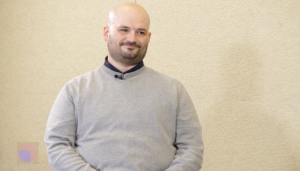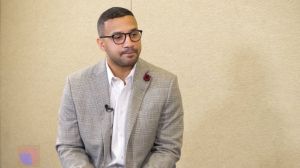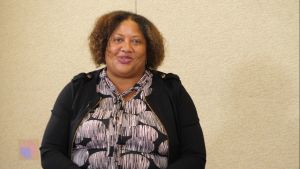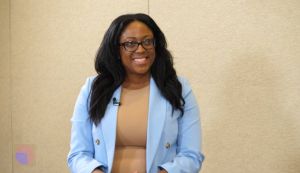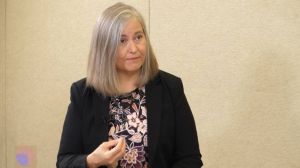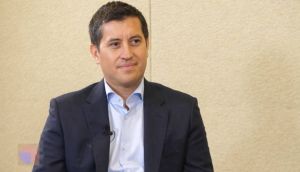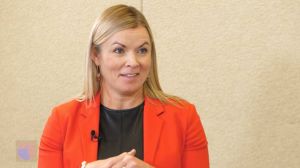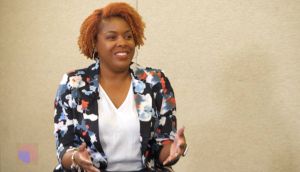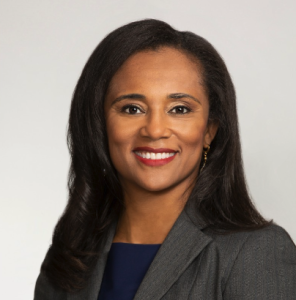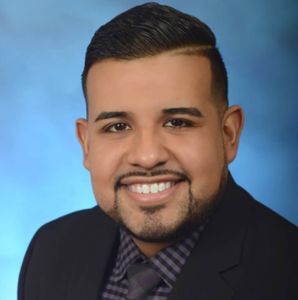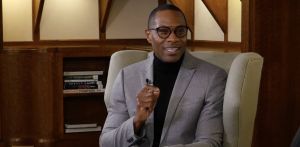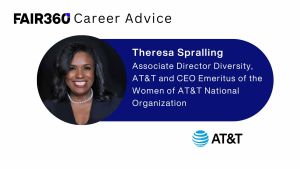“We have a high touch approach with leadership positions that includes relationship building across the entire Wells Fargo footprint,” says Quinn, Senior Vice President, Military Affairs Program Manager at Wells Fargo.
Jerry Quinn is the Senior Vice President, Military Affairs Program Manager at Wells Fargo. He oversees the development and execution of the enterprise-wide strategy for military members, veterans and their families. Additionally, Jerry is responsible for developing national relationships with the military and veteran community, including the Department of Defense, Veterans Affairs, national military and veteran service organizations, and support entities. He leads the company’s internal and external strategy focused on financially empowering military members and veterans through career transition, housing initiatives and financial education.
Jerry has worked in the banking industry for more than 24 years, and is in his 29th year with the U.S. Army. During his fourteen-year career at Wells Fargo, Jerry was also a principal business relationship manager with Retail Banking in Colorado. Prior to that, Jerry held positions as Community Bank President and Correspondent Banking Officer. In uniform, Jerry serves with the 84th Training Command (Army Reserve) as a Brigade Operations Officer for mission command training and assessment for brigade and division staffs in strategy and planning. Past assignments have included army and brigade staff and company command assignments in the Middle East, Europe, Washington, D. C. and Panama.
A native to Colorado, Jerry attended Colorado State University, earning a bachelor’s degree with dual emphasis in finance and real estate, as well as an MBA in organizational design and change management from the University of Colorado. He’s also a graduate of the University of Colorado School of Banking.
He has served on the board of the Association of Military Banks of America since 2014 and continues to volunteer with veteran service organizations.
DI: How has being in this role and working with military initiatives impacted you on a personal level?
I am honored to serve Wells Fargo in my capacity. The company has provided me the opportunity to combine both of my professional careers: military service and banking. It has impacted me on a personal level because we have been able to tangibly affect the lives of military and veterans. As a life-long banker, I am personally proud to get to contribute in these ways to a community that I love.DI: What are some programs that Wells Fargo offers military members (veterans, Guard and Reserve)?
Wells Fargo has more than 200 team members on military leave at any given time. The company offers active guard and reserves supplemental pay designed to make up the difference between their Wells Fargo pay and military base pay; medical, dental, vision, and long-term care coverage; and pay for work missed due to weekend drill and annual training. We are proud to support America’s all volunteer force in this way. So much is asked of our reserve forces.
For those transitioning from military service, Wells Fargo offers Military Apprenticeships, a Veteran Employment Transition internship program, American Corporate Partnersmentorships, and scholarships and emergency grants through Scholarship America. We currently have more than 8,300 team members who self-identify as being veterans.
DI: What kind of impact has the Veterans ERG had on Wells’ military members? Can you detail a couple of examples?
Wells Fargo’s Veteran Team Member Network (VTMN) has more than 8,000 members that accomplish a great deal on behalf of the company. Network members volunteer to rehabilitate veteran homes, participate in veteran recruiting events and strategy meetings, and coordinate Veterans Day parade activities, among many activities in and outside of the company.
DI: How have these programs allowed for Wells to address or meet business objectives?
The VTMN has consulted with the enterprise and helped us improve the way we interact with our military service members and veterans. They help us celebrate our military and veterans in our local communities, volunteer to rehabilitate veteran homes, support the Secretary of Defense Employer Support of the Guard and Reserve (ESGR) initiatives, and earn countless awards from the ESGR for their commitment to supporting our military.
DI: Are veterans recruited for leadership positions?
Veterans are recruited at all levels at Wells Fargo, including leadership roles. Through our Veteran Employment Transition program, we have been able to target roles that are more senior and identify senior noncommissioned and commissioned officers. Our Military Apprentice Program is expanding to focus on leadership positions. Finding the right level leadership role for high-ranking military talent can be a challenge. Wells Fargo has addressed this by working with military talent liaisons who help refer candidates. We have a high touch approach with leadership positions that includes relationship building across the entire Wells Fargo footprint.
DI: How can employers make the transition for veterans easier?
Civilians have a hard time understanding veteran resumes and veterans sometimes have a hard time translating their skills and abilities into civilian terms. Employers can help veterans translate their transferrable skills, such as leadership, discipline and teamwork. They can offer special resources to ensure veterans know jobs that they may qualify for using these skills. As employers, we can learn some of these unique elements of the military career and learn how to better identify the abilities that veteran talent brings to our company.


